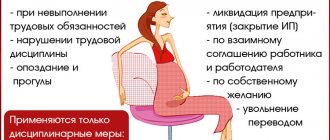Who are disabled children?
This category includes persons under 18 years of age with health problems that are accompanied by systematic disorders in the functioning of the body. They can be caused by injury or illness. Such violations lead to complete or partial loss of the ability to self-care.
A special commission can determine whether a child is classified as disabled. Health disorders can be different, and not all of them lead to difficulties in the process of self-care and maladjustment in society.
Income tax benefits
The main tax benefit available to parents of a child with a disability may include a personal income tax deduction. In accordance with Art. 218 of the Tax Code, the deduction for each month of the tax period for citizens with a disabled child under 18 years of age is 12 thousand rubles .
A tax deduction is provided if there is a corresponding application, which, after writing, is submitted to the employer. The application will need to be accompanied by documents confirming the citizen’s right to receive a deduction - in this case, this is a copy of the conclusion issued by the ITU commission and the child’s birth certificate, in addition, if there is no second parent, this fact will also need to be confirmed. It is important to take into account that the deduction can be obtained only for one place of work - where exactly - the employee can choose.
Parents' complex child care responsibilities
Disabled children are not able to take care of themselves in everyday life (or cannot cope with certain tasks). Depending on the type of disorder, they may have problems with movement, orientation in space, interaction with others, communication, control of behavior, etc.
Therefore, the family has to devote a lot of time to caring for such a child. This requires time, money and special skills. In some cases, the constant presence of another person next to the disabled person is necessary. Therefore, special rules apply to immediate family members.
Who belongs to the group of disabled children? Legislative framework of the issue
The definition of a disabled child means, first of all, a person who has any impairment of vital organs, which causes the inability to feel normal in society. Diseases can be caused both congenitally and after receiving any injuries.
USEFUL INFORMATION: How to find out your child’s TIN from their birth certificate online
A disabled child cannot independently care for himself in everyday life, navigate in space, study, and so on (depending on the form of the disease).
Until the age of 18, a person with disabilities is considered a disabled child.
There are many laws on the territory of the Russian Federation that guarantee social protection and financial support for children with disabilities. The legal framework is the same for both children and adults.
It includes:
- Decree of the Government of the Russian Federation No. 95, which regulates clear conditions and procedures for registering a particular disability group;
- Order of the Ministry of Labor and Social Development No. 17, which sets out clear conditions under which a medical examination can be ordered. It allows you to detect the causes that resulted from disability, assigns a group and a rehabilitation plan;
- Order of the Ministry of Health No. 317, which provides for the procedure for conducting a medical examination;
- A list of Federal laws that clearly regulate all the rights of disabled children, including the right to free medicine and to receive social benefits.
Employment and hiring
According to the labor code, employers are prohibited from not hiring women who have children, regardless of whether they are disabled or not. The same rule applies to single fathers, guardians and trustees. The future employee must provide the information about himself required by the employer, but he has the right not to report the health status of his children.
The rights of parents of a disabled child include receiving certain benefits related to work. To use them, the employee must present the child’s birth certificate and a certificate of disability.
Additional days off
Persons caring for disabled children are entitled to four additional paid days each month. They can be used by one of the parents or divided equally among themselves at their discretion. Unused days are not carried over to the next calendar month. They should usually be provided upon request.
Payment for each day off is calculated and made in the amount of average daily earnings.
In addition to the employee’s personal statement, the originals of the following documents must be presented:
- child's birth certificate or guardianship order;
- identification card when the child reaches 14 years of age;
- a report from the medical organization where the examination was carried out;
- certificate of registration at the place of residence;
- a certificate of disability from the Social Protection Authorities, which clearly states the fact that the child is not being kept in a specialized children's institution. These include shelters, assistance centers, social rehabilitation centers for minors;
- a certificate from the official place of work of the second parent, indicating that he did not use paid days off. If dad (mom) is not working at this time or is registered as an individual entrepreneur, then you need to attach a copy of the work book or confirmation of registration of the individual entrepreneur.
The last paragraph can be excluded if there is a paper on divorce, the death of one of the parents, or a court decision on deprivation of parenting rights.
This is important to know: Benefits for disabled people in case of an accident
After collecting all the documentation, an appropriate order is drawn up and given to the employee for review. If there are no complaints, he puts a personal signature, after which he is given a settlement.
Features at work for parents of a disabled child
Since caring for a special needs child requires a lot of time and effort from relatives, it is obvious that the mother or father does not have the opportunity to work fully. According to the law, special rules for organizing work are provided for persons who care for a disabled person. These rules apply to those whose child’s condition allows them to work, and does not require constant presence with him.
Working conditions and working hours
When concluding an agreement with a person in whose care a disabled child is, the employer is obliged to establish a part-time working day or organize a part-time working week. In this case, the number of working hours or working days may be reduced. If a work shift lasts more than 4 hours, then it is entitled to a break.
In part-time working conditions, remuneration is made according to the usual rules. For such an employee there are no restrictions regarding paid leave, length of service, etc.
The rights of parents raising children with disabilities also include the following features:
- they are not sent on business trips;
- they should not be required to work overtime;
- going to work at night is not allowed;
- they may not be present at the workplace overtime on weekends.
The employee has the right not to use these privileges at his own discretion. The employer may approach him with an offer to go on a business trip or work a night shift, but must warn him that the employee is allowed to refuse.
Additional days off and holidays
Persons caring for children with disabilities are given four additional days off per month. This is done upon a written application from the employee. This amount can be used by one of the parents, or they can be divided between both. There are no deductions from wages for additional days off for persons caring for disabled people. This number of paid days off remains the same, no matter how many children with special needs are in care.
Also, such employees are provided with additional leave of 14 days. Such leave, upon written request of the employee, may be granted along with regular leave. But you can also get it separately. In this case, wages are not retained.
Sick leave
A person who has a disabled child under the age of fourteen has the right to receive payments for the entire time during which outpatient or inpatient treatment is provided. But the total duration of treatment should not exceed 120 days.
Restrictions upon dismissal or termination of an employment contract
A reduction in staff at an enterprise does not allow the employer, on his own initiative, to fire a single mother (or other person) who is in charge of a disabled child. This is possible only if there are gross violations of labor discipline on the part of the employee.
Labor benefits
In accordance with Russian legislation, parents of a child with disabilities have the right to receive a number of benefits. These include benefits established by the Labor Code of the Russian Federation:
- Part-time work (Article 93 of the Labor Code of the Russian Federation)
The employer is obliged to establish part-time work for one of the parents of a disabled child under 18 years . At the same time, the employee’s work schedule should be set taking into account his interests, and not the employer’s representative. Establishing a part-time working day does not reduce the time of annual leave and length of service.
- Exemption from business trips to other regions of the country (as well as the state), appearance at work at night, on weekends and holidays (Article 259 of the Labor Code of the Russian Federation)
The employer's representative does not have the right to engage an employee at night, overtime, on holidays and weekends, or to send him on a business trip to other regions without his consent. At the same time, the employee, if desired, can agree, because This is his right - in this case he will need to draw up a written consent.
- Additional days off (Article 262 of the Labor Code of the Russian Federation)
One of the parents of a child with a disability has the right to receive 4 additional paid days off per month. To do this, the employee must submit a written application. The application shall indicate the following information:
- Name of the employing organization.
- FULL NAME. and the position of manager.
- FULL NAME. and the employee's position.
- The name of the document (in this case – “Application for additional paid days off”).
- Request for 4 additional days off in connection with caring for a disabled child (information about the child - full name, date of birth, disability group).
- Indicating the dates that the employee wants to use as additional days off.
- An indication that the 2nd parent did not take advantage of the right to additional days off.
- List of attached documents (namely, a copy of the ITU conclusion and birth certificate).
- Document submission date and signature.
applications for additional paid days off
It is recommended that the application be drawn up in 2 copies - handing the 1st to the employer’s representative (an employee of the HR or accounting department), and keeping the 2nd, on which the employee who accepted the documents puts a mark (organization seal, date and signature).
- Additional unpaid leave (Article 263 of the Labor Code of the Russian Federation)
An employee who has a disabled minor child has the right to receive additional (unpaid) leave at a time convenient for him, lasting up to 2 weeks . This leave (if there is a corresponding application from the employee) can be added to the main paid leave. It is also possible to divide this vacation into several. At the same time, it is important to take into account that there is no right to transfer such leave to subsequent years.
- Vacation at any convenient time (Article 262.1 of the Labor Code of the Russian Federation)
One of the parents of a child with disabilities has the right to take annual paid leave at a time convenient for him (i.e., regardless of the schedule or the wishes of the employer).
- Early assignment of pension (Article 32 of Federal Law No. 400)
Another benefit is the retirement benefit. At the same time, only citizens with a certain work experience can take advantage of this opportunity, for men it is 20 years, for women - 15. If they have the above-mentioned experience, a woman receives the right to retire in 2020 at 50 years old, a man at 55 years old .
Types of benefits for parents raising a disabled child
The main benefits for such families include:
- receiving free medicines;
- products for medical nutrition;
- treatment in a sanatorium;
- travel to medical institutions free of charge for a disabled person and an accompanying person;
- orthopedic care and prosthetics;
- the opportunity to receive compensation for unused free services;
- preferential conditions for paying property taxes;
- social tax deductions for children with disabilities;
- early retirement for parents;
- reduction in utility bills by 50%;
- improving living conditions by obtaining free social housing.
Also, such families may be provided with additional benefits depending on the region of residence and the benefit programs operating there.
Types of social benefits and benefits
All types of state assistance to support such families are based on the number of disabled children, regardless of their financial situation. This principle continues in 2020, and the state has no plans to revise it.
State benefit for caring for a child with a disability
If a child is born into a family with a disability or another serious illness, the able-bodied parent will not be able to work, because he will spend all his time caring for a disabled person of group 1. However, he will be able to receive a monthly special allowance.
In 2020, there is a standard that depends on the relationship between the child and the person caring for him:
- If care is provided by a parent (adoptive parent) or guardian, the payment amount is 5,500 rubles monthly;
- When a voluntarily consenting outsider is caring for you, the amount of compensation is 1,200 rubles.
The payment is transferred to the child’s account along with his social disability pension.
Benefits for receiving free medications
Medicines prescribed by a doctor and provided with a prescription can be purchased by parents for their children with disabilities free of charge. The following are allocated from budget funds:
- Medicines as prescribed;
- Syringes with needles;
- Insulin;
- Glucometers and test strips;
- Wheelchairs;
- Children's medicinal food products.
Children who need prosthetics are provided with prosthetics and orthopedic shoes free of charge.
Spa treatment
The child is referred by the attending physician. The choice of place for sanatorium treatment is carried out by a special commission, taking into account the profile of the institution and the child’s illness. Payment for the child’s treatment and the stay of the accompanying parent at the resort is made from the state budget. Transportation to the place (in both directions) will also be free for the family.
Legislative regulation
This area is regulated by the following legislative and regulatory acts:
- Constitution of the Russian Federation.
- Federal Law No. 181.
- Federal Law No. 255.
- Labor Code.
Raising a disabled child is a difficult process. His condition requires careful attention from his relatives and constant care. In this regard, the life of such a family is very difficult, and there is a need to receive assistance from the state. That is why special rules are provided for persons caring for sick children.
List of main benefits
The main emphasis is on medical care and state support for this category of citizens. Thus, benefits for large families with a disabled child in 2020, as part of medical assistance, include the following:
- Free medicines and medicines;
- Spa treatment;
- Free travel to and from the treatment site.
Medicines and medical products include:
- Insulin needles;
- Test strips for blood sugar determination procedures;
- Syringe pens.
Medical nutrition products are also provided. Free vouchers and travel are also provided to those accompanying a disabled child. In addition, a transport tax benefit is provided to parents of a disabled child on a monthly basis.
Considering what benefits are available to parents raising a disabled child, it is also worth mentioning that if vouchers, travel or a number of prescribed medications were not in demand, you can receive compensation payments in the amount of 1052 rubles.
The legislative framework
The norms of the Labor Code (Labor Code) of Russia, Government Decrees, laws and by-laws ensure the provision of the following preferences to families raising their own or warded disabled children:
| Name of the normative act | What benefits are provided? |
| TK, Art. 262 | On receiving additional days of rest for working parents |
| TK, art. 263 | The right to additional leave without pay |
| TK, Art. 93 | Ability to work less than 8 hours |
Parents of children with disabilities can receive benefits and guarantees until they reach adulthood. For further education of a disabled person of groups 1 and 2, parental preferences are valid until the child’s 24th birthday, but young people must study full-time.
Social support for parents of disabled children
To do this, you need to get a special referral.
dated 09/06/2011). It includes not only a list of restrictions on the main categories of life activity, but also a list of medical, psychological, pedagogical and social rehabilitation measures. Social support measures for families raising a disabled child.
The parent or guardian contacts the regional office with it and a package of documents.
To make a decision, the responsible authority may require additional information about the child with a disability. To obtain them, special types of examination are carried out, which are indicated in the program drawn up for these purposes. It may involve the child being in a hospital during the procedures, but this is not a prerequisite.
You can refuse to complete the additional examination program.
A corresponding note will be made in the documents. The decision will be made taking into account the data available to experts. In this case, it may not be in favor of the child.
The progress of the MS examination is recorded. The procedure is carried out by a commission, which must include at least four specialists.
Parents of a disabled child: labor rights and benefits
Depending on the degree of impairment of body functions and limitations in life activity, children under 18 years of age are assigned the category “disabled child” (Part 3 of Article 1 of Federal Law No. 181-FZ of November 24, 1995, hereinafter referred to as Law No. 181-FZ) To confirm the child’s disability, the employee must provide the employer with a certificate of the established form with the decision of the medical and social examination - MSE (Appendix No. 1 to the order of the Ministry of Health and Social Development of Russia dated November 24, 2010 No. 1031n). Disability can be established for a period of one year, two years or until the child reaches the age of 18 years.
The specific deadline is indicated in the ITU certificate.
Re-examination of children is carried out once during the period for which the child is diagnosed with a disability. Therefore, if the previous certificate has expired and the parents of a disabled child have not submitted a new ITU certificate, they are not provided with benefits at the place of work. Documentation,
Authorization
A disabled person is a person who has a health impairment with a persistent disorder of body functions, caused by diseases, consequences of injuries or defects, leading to limitation of life activity and necessitating his social protection. Limitation of life activity is a complete or partial loss of a person’s ability or ability to provide self-care, move independently, navigate, communicate, control one’s behavior, learn and engage in work. Depending on the degree of impairment of body functions, persons recognized as disabled are assigned a disability group, and persons under the age of 18 are assigned the category “disabled child” (as amended by Federal Laws dated July 17, 1999 N 172-FZ, dated December 1, 2014 N 419-FZ). Recognition of a person as disabled is carried out by the federal institution of medical and social examination. The procedure and conditions for recognizing a person as disabled are established by the Government of the Russian Federation (as amended by Federal Law No. 122-FZ of August 22, 2004).
• BENEFITS FOR PARENTS OF DISABLED CHILDREN.
For parents of disabled children, the state provides a number of social guarantees - cash payments and benefits, in particular, a monthly compensation payment has been established for a non-working able-bodied parent (adoptive parent) caring for a disabled child under the age of 18. To obtain it, you need to submit the necessary documents to the Pension Fund of Russia. A non-working able-bodied person caring for a disabled child under 18 years of age is entitled to a monthly compensation payment. It is provided for the period of caring for a disabled child (clauses 1, 3 of Decree of the President of the Russian Federation dated February 26, 2013 N 175; clause 2 of the Administrative Regulations, approved by Order of the Ministry of Labor of Russia dated September 11, 2017 N 669n). Also, at the Territorial Branch of the Pension Fund of the Russian Federation, you can apply for a social disability pension and a monthly cash payment for a disabled child (clause 2, clause 1 and clause 2, article 11 of the Law of December 15, 2001 N 166-FZ; art. 28.1 of the Law N 181- Federal Law). The amount of compensation for a parent (adoptive parent) is 5,500 rubles. The amount of social disability pension from April 1, 2018 is RUB 12,432.44. (Clause 1 of Decree No. 175; Clause 2 of Clause 1 of Article 18 of Law No. 166-FZ; Clauses 1, 3 of Decree of the Government of the Russian Federation of March 20, 2018 No. 302). The basic amount of monthly cash payment for a disabled child, excluding indexation, is 1,544 rubles. Indexation of payments is made once a year from February 1 of the current year based on the consumer price growth index for the previous year in accordance with the coefficient determined by the Government of the Russian Federation. As of February 1, 2018, the payment amounted to RUB 2,590.24. (clause 2, part 2, part 4, article 28.1 of Law No. 181-FZ; Decree of the Government of the Russian Federation of January 26, 2018 No. 74). Additional cash payments and benefits can be established at the level of constituent entities of the Russian Federation. The list of social support measures can be clarified at the social protection department at your place of residence (place of stay).
• ADDITIONAL DAYS FOR CARE FOR DISABLED CHILDREN. One of the parents (guardian, trustee) to care for disabled children, upon his written application, is provided with four additional paid days off per month, which can be used by one of these persons or divided among themselves at their discretion. Payment for each additional day off is made in the amount of average earnings and in the manner established by federal laws. The procedure for providing these additional paid days off is established by the Government of the Russian Federation (Article 262, “Labor Code of the Russian Federation” dated December 30, 2001 N 197-FZ (as amended on February 5, 2018). • STANDARD TAX DEDUCTION FOR INDIVIDUALS INCOME TAX. On each child, if a child under the age of 18 is a disabled child, or a full-time student, graduate student, resident, intern, student under the age of 24, if he is a disabled person of group I or II, is provided with: - tax deduction 12,000 rubles for each month of the tax period, applies to the parent, spouse of a parent, adoptive parent, who is supporting a disabled child; - tax deduction of 6,000 rubles for each month of the tax period, applies to the guardian, trustee, adoptive parent , the spouse of the adoptive parent, who is providing for the child, in the following amounts: The only parent (guardian) is given a deduction in double amount (clause 4 paragraphs 1 art. 218 of the Tax Code of the Russian Federation). Starting from the month in which the specified income exceeded 350,000 rubles, the tax deduction is not applied. • GUARANTEES WHEN SENDING ON BUSINESS TRAVELS, WORKING OVERTIME, NIGHT WORK, WEEKENDS AND NON-WORKING HOLIDAYS
Sending on official business trips, engaging in overtime work, night work, weekends and non-working holidays of employees with disabled children is allowed only with their written consent and provided that this is not prohibited to them in accordance with a medical certificate issued in in the manner established by federal laws and other regulatory legal acts of the Russian Federation (Article 259 of the Labor Code of the Russian Federation).
• MEASURES OF SOCIAL SUPPORT Social support for families with disabled children is a system of economic, legal, and social support measures guaranteed by the state, which provides families with disabled children with conditions for a normal existence and overcoming natural limitations in life. Social support measures for families with disabled children are provided for at the level of both federal and regional legislation.
1. Social support measures for families with disabled children provided for by federal legislation. At the level of federal legislation, the state provides the following social support measures to families with disabled children.
1.1. Set of social services. Disabled children are given the right to choose money or a set of social services that have a certain value (social package) (Clause 9, Article 6.1 of the Law of July 17, 1999 N 178-FZ). The social package includes: - additional free medical care, including the provision of necessary medicines, medical products, as well as specialized medical nutrition products for disabled children according to doctor’s (paramedic’s) prescriptions according to the approved List; — provision of a voucher for sanatorium-resort treatment for the prevention of major diseases (if there are medical indications). Vouchers are provided by regional branches of the Social Insurance Fund of the Russian Federation; — free travel on suburban railway transport, as well as on intercity transport to the place of treatment and back. In addition, if a disabled child is given a voucher for sanatorium-resort treatment, the person accompanying the child is given a second voucher and is given the right to free travel on suburban railway and intercity transport to the place of treatment and back (Article 6.2 of Law No. 178-FZ ).
1.2. Free provision of disabled people with technical means of rehabilitation. Currently, there is a List approved by Order of the Government of the Russian Federation dated December 30, 2005 N 2347-r, which lists rehabilitation measures, technical means of rehabilitation (TSR) and services that are provided to a disabled person. This List is quite extensive and contains, in particular, the following TSR: support and tactile canes, crutches, supports, handrails; wheelchairs with manual drive (indoor, walking, active type), with electric drive, small-sized; prostheses and orthoses; orthopedic shoes; special clothing; special devices for reading “talking books”, for optical correction of low vision; guide dogs with a set of equipment; medical thermometers and tonometers with speech output; light and vibration sound alarms; hearing aids, including custom-made earmolds; televisions with teletext for receiving programs with closed captions; telephone devices with text output; voice-producing devices. Services include repair of technical rehabilitation equipment, including prosthetic and orthopedic products; maintenance and veterinary care of guide dogs (by payment of annual monetary compensation); provision of sign language translation services.
1.3. Providing people with disabilities with living space. Families with disabled children who need improved housing conditions are registered and provided with living quarters in the manner prescribed by law. Residential premises are provided to disabled people and families with disabled children, taking into account their state of health and other circumstances worthy of attention (Article 17 of the Law of November 24, 1995 N 181-FZ).
Note. Disabled people and families with disabled children are provided with compensation for established expenses for living quarters and utilities in the amount of 50%, regardless of the type of housing stock (Article 17 of Law No. 181-FZ).
1.4. A special procedure for calculating the insurance period for a person caring for a disabled child. The period of care of a disabled child by an able-bodied person is counted in the insurance period for calculating the labor pension (clause 34 of the Rules, approved by Decree of the Government of the Russian Federation of October 2, 2014 N 1015).
2. Social support measures for families with disabled children provided for by regional legislation. Social support measures for families with disabled children are provided in the Primorsky Territory. These include, in particular: - the right to provide residential premises to families with disabled children in need of residential premises, and registered before January 1, 2005 (as amended by the Primorsky Territory Law of November 7, 2012 N 117-KZ) (Law of the Primorsky Territory dated June 26, 2006 No. 389-KZ), - state social assistance is established in the amount (but not more than actual expenses incurred) of up to 20,000 rubles (payment of travel costs) - to persons accompanying citizens from among the poor recognized as in accordance with the established procedure, disabled people of group I, and minor children, disabled children to a place of treatment or consultation outside the Primorsky Territory, sent by the executive body of the Primorsky Territory, exercising, within the limits of its powers, public administration in the field of healthcare in the territory of the Primorsky Territory (as amended by the Laws of Primorsky Territory Territory dated 06/11/2010 N 629-KZ, dated 09/29/2014 N 471-KZ) (Primorsky Territory Law dated 06/06/2005 No. 255-KZ), - compensation payments in the amount of 50 percent of the current tariff for travel by car ( water) public transport along regular transportation routes in intercity traffic in the Primorsky Territory and in the amount of 50 percent of the cost of a long-term ticket for travel in urban and suburban traffic in the Primorsky Territory for disabled citizens with group I disabilities and children - disabled people have the right to receive compensation for the person accompanying them. (Law of the Primorsky Territory dated December 29, 2004 N 206-KZ, Law of the Primorsky Territory dated August 12, 2011 N 806-KZ); — benefits when visiting sports facilities owned by the Primorsky Territory and paid events organized by regional state physical culture and sports institutions (Law of the Primorsky Territory dated April 10, 2009 N 399-KZ, Law of the Primorsky Territory dated October 3, 2013 N 253-KZ); - parents (legal representatives) with disabled children aged 3 to 18 years inclusive, who raise and educate them at home independently, are paid compensation for expenses incurred for these purposes (hereinafter referred to as compensation) in the amount of actual expenses incurred, but no more 10,000 rubles per year. Payment of compensation is made according to documents confirming actual costs during the current financial year (as amended by Resolution of the Administration of Primorsky Krai dated December 4, 2013 N 442-pa). One of the parents (legal representatives) of a disabled child who is raised and educated at home under general education programs independently has the right to receive compensation. (Resolution of the Primorsky Territory Administration of March 2, 2011 N 58-pa “On the procedure for raising and educating disabled children at home in the Primorsky Territory”). — families with disabled children, in accordance with clause 1.1 of the “Procedure and conditions for providing social support measures for the payment of residential premises and utilities to certain categories of citizens living in the Primorsky Territory”, are provided with social support measures for the payment of residential premises and utilities ( in addition to payment for the cost of fuel and transport services for its delivery, supplies of household gas in cylinders) are provided in the form of a monthly cash payment, for payment of the cost of fuel and transport services for its delivery, supplies of household gas in cylinders - in the form of an annual cash payment. The amount of monthly cash payment is calculated individually for each recipient in accordance with current legislation (clause 3.1). (Resolution of the Governor of Primorsky Krai dated July 16, 2008 N 63-pg).
Source: information base Materials used: Labor Code of the Russian Federation dated December 30, 2001 N 197-FZ, Tax Code of the Russian Federation (part two)" dated August 5, 2000 N 117-FZ, Federal Law dated November 24, 1995 N 181-FZ (as amended dated 03/07/2018) “On social protection of disabled people in the Russian Federation”, “What benefits are available to parents of disabled children?” (“Electronic magazine “ABC of Law”, 2018), “What kind of non-monetary assistance is available to families with disabled children?” (“Electronic magazine “ABC of Law”, 2018)
State guarantees and benefits for disabled children and their families
True, the concept of “disabled child” is not assigned to every child who has any deviation; the simultaneous presence of 3 conditions enshrined in Decree of the Government of the Russian Federation of February 20, 2006 No. 95 “On the procedure and conditions for recognizing a person as disabled” is necessary: 1.
Impaired health with persistent impairment of body functions; 2. Limitation of vital functions; 3.
The need to apply social protection measures. For example, a child with diabetes will not receive the status of a disabled child if he has no complications and there is a possibility of decompensation of the disease. The category “disabled child” in accordance with the above Decree of the Government of the Russian Federation can be established for the following periods: 1.
For 1 year; 2. For 2 years; These 2 terms can be assigned if there is a good prognosis for recovery. 3. Since 2012, a child can receive disabled status for 5 years if he
Education and training of disabled children
Disabled children of preschool age are provided with the necessary rehabilitation measures and conditions are created for their stay in general preschool institutions. For disabled children whose health condition precludes their stay in general preschool institutions, special preschool institutions are created. (Federal Law of the Russian Federation “On Social Protection of Disabled Persons in the Russian Federation” dated November 24, 1995, Art. 18.) Priority placement of disabled children in preschool institutions. (Decree of the President of the Russian Federation dated October 2, 1992) Exemption from fees for preschool education for parents with children who, according to the conclusion of medical institutions, have identified deficiencies in physical or mental development. (Resolution of the Supreme Council of the Russian Federation dated March 6, 1992 No. 2464-1.)
Possibility of raising and educating disabled children at home and in non-state educational institutions
The procedure for raising and educating disabled children at home and in non-state educational institutions, as well as the amount of compensation for the costs of parents (legal representatives) for these purposes. (Approved by Decree of the Government of the Russian Federation dated July 18, 1996 No. 861.)
For children and adolescents with developmental disabilities, educational authorities create special (correctional) educational institutions (classes, groups) that provide their treatment, upbringing and training, social adaptation and integration into society. (Federal Law of the Russian Federation “On Education” dated January 13, 1996, No. 12-FZ, Art. 10.)
Financing of these educational institutions is carried out according to increased standards. The categories of students and pupils sent to the specified educational institutions, as well as those kept on full state support, are determined by the Government of the Russian Federation. Children and adolescents with developmental disabilities are sent to the specified educational institutions only with the consent of their parents (legal representatives) based on the conclusion of the psychological, pedagogical and medical-pedagogical commissions. (Model Regulations on a special (correctional) educational institution for students and pupils with developmental disabilities. Approved by Decree of the Government of the Russian Federation dated March 12, 1997, No. 288.)
Example 1. Application for additional days off for a parent of a child with a disability
Sidorovich Vladislava Vlaslavovna, a Muscovite, works as a specialist in the control and audit department at Infovector LLC. One is raising a child who, according to ITU, is diagnosed with a disability. The woman is going to take 4 additional paid days off from 11/11/2020 to 11/14/2020. To do this, she wrote a statement addressed to the director of Infovector LLC, Svyatoslav Petrovich Loginov. Attached to it was a document confirming the absence of the second parent – the child’s father. The application was written and submitted for approval to the employer personally by the employee on November 5, 2020.
The application is drawn up on a standard form, approved. By Order of the Ministry of Labor and Social Protection of the Russian Federation No. 1055n dated December 19, 2014. The completed fields in the example are highlighted in yellow.
The employer does not have the right to refuse the applicant and is obliged to provide days off when she requests. All days are paid in the amount of average earnings.









